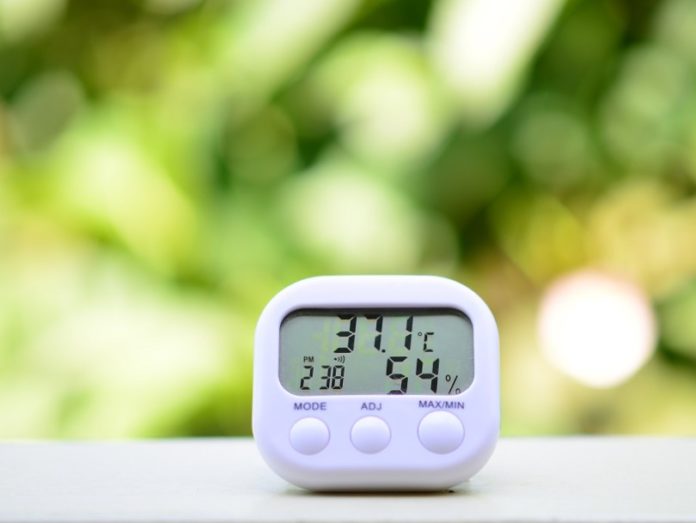OKAY, IT’S HOT. but how hot? Positioned at a height of 1.5 metres and in constant shade (with air circulation), The Weekly was able to get an accurate temperature reading of 37°C today.
The location was near the Murwillumbah Leagues Club.
What’s the temperature at your place?
It’s 42°C+ in the sun. But there’s a 90 per cent chance for rain tomorrow, Sunday January 15, and cool change with minimum temperatures 24°C and maximum of 29°C.
The hottest January day on record in Murwillumbah, was 42.9°C recorded on January 12, 2002, according to the Bureau of Meteorology
The Bureau of Meteorology further advised that when temperatures are unusually hot over a period of time, with continuously high night-time and day-time temperatures, heat stress becomes a critical factor.
Hot weather can affect anybody, may make existing medical conditions worse and can cause heat-related illness. In some cases heat effects may be fatal. Heatwaves may also affect community infrastructure such as power supply and other support services.
The best way to reduce the risk of heat-related illness is to drink plenty of water and keep your body as cool as possible, and avoid prolonged sun exposure by staying indoors in cool or air-conditioned facilities-either at home or at local shopping centres, libraries and cinemas.
Advice from NSW Health to prepare for a heatwave
It is a good idea to prepare for the heat before it arrives. You can prepare yourself on a personal level as well as your house or apartment. Remember to have a chat with a neighbour or relative/close friend about keeping in contact during a heat wave in case you or they need any help.
Personal
- Regularly check your local forecast from the Bureau of Meteorology on your radio, TV or on the internet.
- Get advice from your doctor about whether your medication and/or your medical conditions may affect what you should do if it gets extremely hot.
- If your doctor normally limits your fluids, check how much to drink in hot weather.
- Check that you can store your medication at less than 25°C (the medication can become less effective or occasionally toxic if stored at higher temperatures – check with your pharmacist if unsure).
- Make sure you know who you are going to call (who may need help and who could provide help to you if needed) – make a list of telephone numbers.
In your house or apartment
- Check your fridges, freezers, fans and air-conditioners to make sure they work properly and make sure your air conditioning is set to cool.
- Stock up on food (for your household and pets), water and medicines to last up to a week so you don’t have to go out in a heat wave.
- Consider buying cool packs to have in the fridge or freezer to help you cool down if needed.
- Put together a small emergency kit to plan for a possible power failure – this may include a torch, batteries, candles, matches, a battery operated radio and a first aid kit.
- Check that your home can be properly ventilated without compromising security.
- If possible, have curtains with pale linings in rooms that get a lot of sunlight to help reflect the heat. Avoid dark reflective curtain linings and metal Venetian blinds as they absorb heat and may make rooms hotter.
- Consider putting external blinds, shutters or some other shading on windows in rooms which face west.
- Insulate your house – not only will this keep it cool in summer, but it will also keep it warm in winter.
- Create a cool room or cool area to go to during extreme heat. This room or area ideally should be east or south facing in the house and can be cooled using indoor and outdoor shading, ventilation and use of a fan or air-conditioning.
- Consider the risk of bushfires as they often occur on days of high temperature. Information on bushfire preparedness is available from the NSW Rural Fire Service.
For further information see the NSW Health website.
The Bureau of Meteorology is urging the public to stay tuned for the latest forecasts and warnings from the Bureau, and follow the advice of local emergency services.
